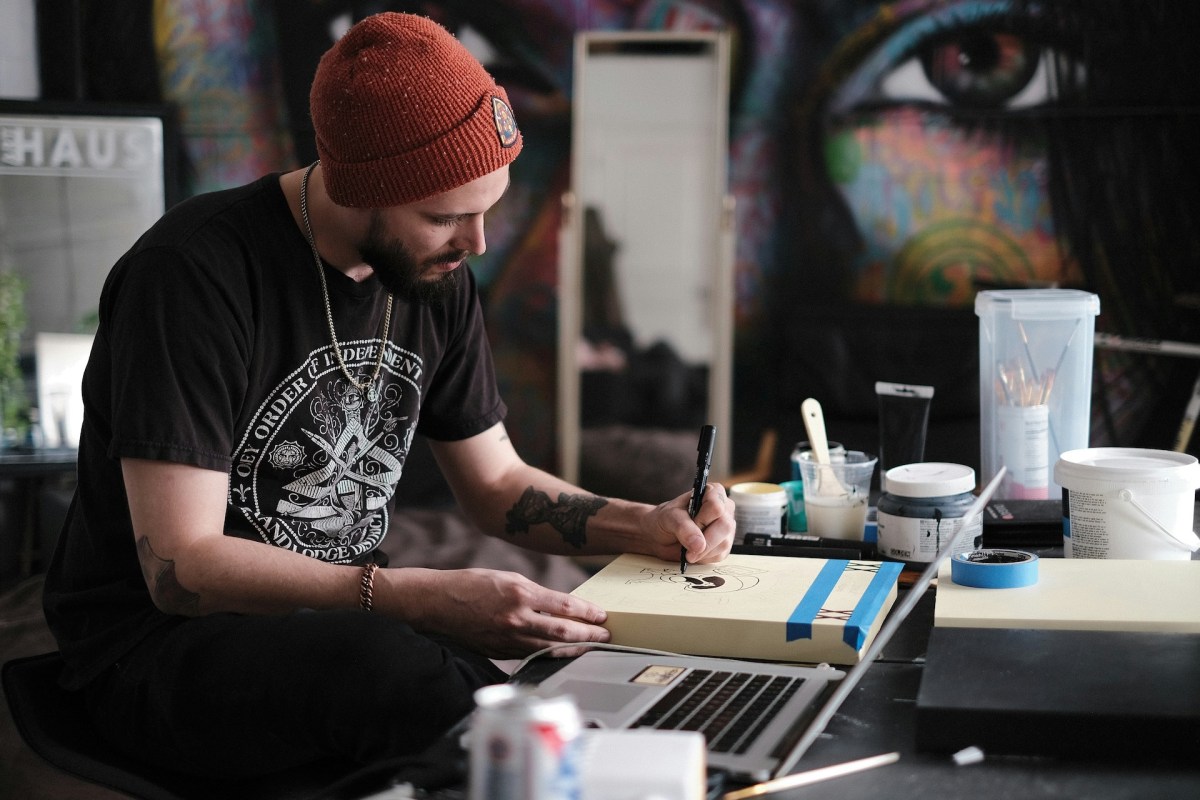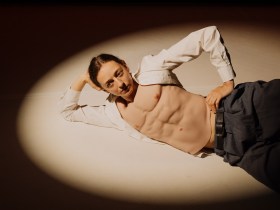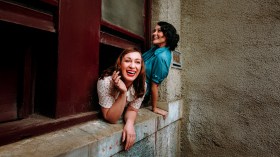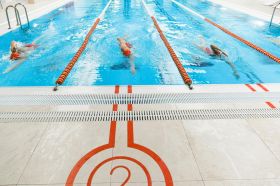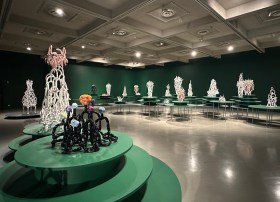Tax reform for artists: quick links
With an average artist income of less than $23,000 – more than half the National Minimum Wage in Australia – the government persists on taxing artists’ incomes from grants, prizes and fellowships. This is not exclusive to the visual arts – authors, dancers, actors, theatre directors are also taxed on the grants they receive.
While many of us take to rocking in a corner at the mere mention of the word ‘tax’, reform is going to prove to be vital if our sector is to survive. This is what we can do.
Tax reform for artists: ‘art washing’
Understand this: the government gives money to the arts, which is then doled out in competitive grant opportunities. The lucky few who receive them, then have to pay the government back for its generosity via income tax.
A sceptic might add, that the money is then circled back into the government’s coffers and pet projects, while ticking the box that they have ‘supported the arts’. For some, it feels like ‘art washing’.
On top of this, most self-employed studio artists and creatives do not benefit from the recent 3.4% Wage Price Index (WPI) that all skilled and unskilled workers got in their pockets (March 2025) to help ward against general inflation, or the 3.5% National Minimum Wage increase effective 1 July 2025. It pushed the minimum wage to $948 per week or $24.95 per hour – around $49,296 per annum, or double the average wage of artists.
Did artists feel the benefit of either of these breaks? I am guessing not.
And yet, artists are subject to the same parameters of income tax without the full range of these benefits for other low salaried workers, due to the nature of our employment.
Tax reform for artists: critical need
Do you know that an athlete receiving a grant under the dAIS (Australian Institute of Sport) is not considered assessable income by the Australian Tax Office (ATO), provided that the athlete is not carrying on a business as a sportsperson?
Any income that an artist or creative receives – even if they are an emerging artist – is subject to tax, regardless of how small that income may be.
The National Association for the Visual Arts (NAVA) has long been advocating for tax reform. Executive Director Penelope Benton writes: ‘NAVA has long argued that this situation is unsustainable and advocates for tax reform that exempts all art prizes, government grants, and fellowships. These awards are not a form of regular income but are rare and vital financial lifelines that allow artists to continue their work and enrich Australia’s cultural landscape.’
On 26 September 2025, the NSW Government will hold a tax reform summit at the Sydney Opera House to develop policy proposals aimed at improving the tax system to better support the arts.
This is a critical moment for arts workers and artists to have their say. Submissions and survey responses are due by 10 August 2025.
Benton continues: ‘The Australian Tax Office (ATO) requires artists to pay income tax on the rare and highly competitive prizes and grants that are meant to help them sustain their practices. Securing these awards is costly and time-consuming, and after expenses and tax, they often provide far less financial relief than intended.’
Award-winning artist Ben Quilty has also been a long advocate for tax reform for artists. He describes our tax priorities – who should and shouldn’t be exempt from paying tax as ‘bizarre’.
Tax reform for artists: ‘in business’ test
One of these key reforms involves the ATO’s ‘in business’ test, determining whether an artist’s activities qualify as a business or a hobby for tax purposes.
Under the New Business Tax System (Integrity Measures) Act 2000, some artists are still blocked from claiming their art practice expenses because of the Non-Commercial Losses (NCL) provisions.
If you are like me, and the word tax sends an immediate mental blockage to rational understanding and heart palpitating anxiety, then getting your head around NCL provisions and exemptions is probably off the table. But it is critical to understand when it comes to tax reform.
Benton explains: ‘Any arbitrary thresholds, such as earning $20,000 or making a profit in three out of five years, do not reflect the realities of an arts practice – especially when an artist has already satisfied the tests under TR 2005/1, which acknowledge the long timeframes and variability of profit in creative careers.’
A set of five, seeming arbitrary, ‘tests’ set thresholds for inclusion / exclusion for artists. But as we all know, such thresholds rarely make sense in the fluid, precarious world of an artist, which can change dramatic from year-to-year.
‘The NCL provisions place an unnecessary burden on artists, particularly those balancing non-arts jobs to support their creative work,’ explains Benton, adding that, ‘NAVA believes that arts businesses should be exempt from the NCL provisions altogether.’
In April this year, RMIT University with The University of Melbourne tabled a new report that made the point, ‘that workers are abandoning the sector, largely because of unstable employment, below average salaries and lack of support.’
Read: Shortfall in incomes draining visual arts sector, says new report
Our governments love to roll out their cultural credentials when it comes to diverse, nation-based narratives. And hey, what comes out of artists studios is also fantastic for cultural diplomacy. But the win for artists is hardly commensurate to the government gain. One way to rebalance the scales is through greater respect of that ‘value’ artists provide, which is well beyond dollars on spreadsheets.
In the big picture, these simple tax reforms are not going to impact the budgets of our governments, but they will substantially impact the livelihood, mental health and future stability of our practicing artists and creatives.
Is is really such a hard decision?
Discover more arts, games and screen reviews on ArtsHub and ScreenHub.

